
Extremely Loud & Incredibly Close follows a nine-year-old boy named Oscar coming to terms with life after his father's death on 9/11. When looking through his dad's things, Oscar breaks a vase and finds a key and a mysterious envelope labeled "Black". He decides to embark on a mission to find every person named Black in New York City in an attempt to find the one Black who knew his father. Along the way, he meets new friends and discovers more about those he already knew. This book is written from the alternating perspectives of Oscar, his grandmother, and his mute grandfather whom Oscar has never met. This adds an interesting layer to the story, as Oscar lost a parent in 9/11 and his grandparents, both children at the time, lost their families in the bombing of Dresden. This shows a theme throughout this book that grief from war and terror is universal. This book's overall commentary on the human experience and grief, both individual and collectively experienced by a nation, shows the skill and thoughtfulness of the author. On a personal level, I did not find the characters particularly enticing and had a hard time following the plot at times, but I would still recommend the book, especially to someone with an interest in 9/11 or the world wars.
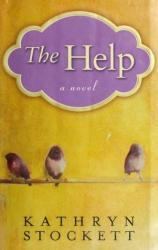
The Help is a novel set in Jackson, Mississippi during the early 1960's, written by Kathryn Stockett. The main character, Eugenia 'Skeeter' Phelan, is a aspiring journalist who lives with her parents and has no intention of starting a family like all of her friends; what she really wants is to be a writer. She decides to take a big risk and interview the help--the African American women who work in the households of white families to make a living--and write about their experiences. Kathryn Stockett's novel follows the lives of three women: Skeeter and two African American women: Aibileen and Minnie. The Help is spectacularly written and very accurately depicts society during segregation. It will make readers laugh out loud, cry, and connect with the characters. The plot is unpredictable and enjoyable, told through several perspectives which creates the perfect character development.
I strongly recommend this book to all readers who enjoy historical fiction.
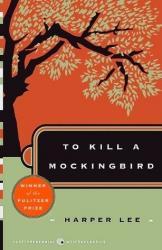
This is a story that beautifully represents society in a way few novels can. Set in Maycomb, Alabama in the early 1930's, it is told from the perspective of a 6-year-old girl, Scout, as she grows, plays, and gets into trouble with her older brother, Jem, and comedic friend, Dill. Scout's wise father, Atticus, must defend an innocent black man accused of rape; along the way Scout meets people and learns things that impact her life. Meanwhile, Scout, Jem, and Dill, are determined to learn more about their mysterious neighbor and the violent rumors that surround him--sometimes getting themselves into humorous situations--and learn something surprising. The book is spectacularly and wisely written, with characters readers will connect with, and themes that are important in all readers' lives: courage, empathy, and the power of standing up for what you believe in. Scout's sense of humor and insightful observations will make readers think and keep turning the pages for more.
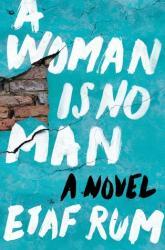
Wow. This book blew my mind! So gripping and powerful, a glimpse into a culture I would otherwise never be privy to. Isra and Deya were both so brave. One doomed and the other prevailing. I learned a lot from them and from this book.
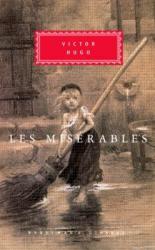
One of the most profound pieces of literature ever crafted, simply due to the fact that the main character is a metaphor for Jesus Christ. This masterpiece of prose has been well documented, however, it relates human tragedy and a profound love as only Mr. Hugo himself could have imagined the reader could absorbed. Cosette is a wonderful character as well as lil' Gavroche and he introduces unknown things to an American audience if they ever read books anymore.;)
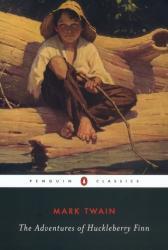
A classic piece of literature, The Adventures of Huckleberry Finn by Mark Twain is a wonderful depiction of life along the Mississippi river and times past. Huckleberry Finn is a wild, adventurous, and self-sufficient young man who finds his way along the river with an escaped slave. Stealing, superstitions, and deception all describe the journey Huck Finn and Jim take together. They encounter rivaling families, con artists, and Tom Sawyer in their attempt to get north. Mark Twain paints a vivid picture of life in the South with slavery in a way that shows that not everyone believed the same thing. A truly fun and interesting story, The Adventures of Huckleberry Finn is a book that will interest even the most disinterested reader.
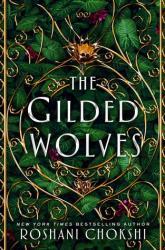
The Gilded Wolves is an excellent adventure-mystery novel set in an alternate Paris that details the adventures of a team of misfits as they perform heists in an attempt to reclaim things they had lost. Each character is represented in the book with chapters from their perspective. This format allows for the reader to engage with the many different characters on a personal level by reading their personal thoughts and getting the details of their past that isn’t expressed in other parts of the book. The storyline of this novel is very interesting and keeps you hooked with the mystery and suspense. This novel is incredibly enjoyable and I would highly suggest it.
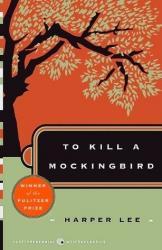
To Kill a Mockingbird is truly a masterpiece of American literature.
Along the lines of Tom Sawyer and Huckleberry Finn, Harper Lee presents us with a coming of age story set in 1930s Alabama. Scout and Jem Finch explore their hometown, get into trouble, wonder about the mystery of Boo Radley, and are faced with a great challenge when their father must prove a man to be innocent. Atticus Finch, Scout and Jem's father, is a wholehearted, unprejudiced role model who always stands up for what is right and who anyone can learn a lesson from. Overall, I understand why many schools require their students to read this book as it is wonderful literature for all generations.
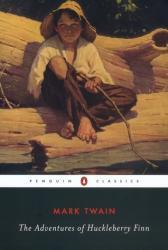
You are slowly floating down river on a warm summer night. You have no worries as you gaze at the endless stars above you. You had a simple day; catching fish to eat and lazily laying in the sun as you float wherever the river takes you. This is the life of Huckleberry Finn.
I gave this book three out of five stars because it was good however it wasn't good enough for me to consider it one of my favorite books. I appreciated the multiple conflicts, the complexity of having several conflicts at once made the book interesting. The characters were all well developed even side characters had underlying intents, and backgrounds.
Additionally, the relationships between the characters was engaging, I especially enjoyed the dynamic between Huck and Jim. Finally, I really enjoyed the internal conflict of Huck as he traveled with a slave. Huck's moral conflict from a society being raised in a society that supports slavery was striking as a 21st century teenager. Despite the positive elements of "The Adventures of Huckleberry Finn" it is only pretty good because I couldn't relate to the characters and the book lacked an emotional connection that would make it one of my favorite books. Regardless, you should read this book for to develop an understanding of the culture of the past.
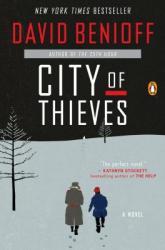
Could not put this book down. The story kept me guessing about what might happen next, but the two main characters were brought to life by the author's ever-present humor of humans in tough situations. One of the best books I've ever read.
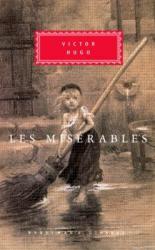
Jean Valjean has been in prison for 19 years. On the day he is freed, he walks to the city of Digne, which is over thirty miles away. Exhausted, he searches for food and shelter, but is rejected at each place he goes to because he was a former convict. Finally he is told to ask the Bishop of Digne for help. The Bishop agrees without hesitation. Valjean wakes up early in the morning and steals the Bishop's silverware. He is caught and brought back to the Bishop, but the Bishop saves Valjean from returning to prison by pretending that the silverware was actually a gift. He even gives Valjean silver candlesticks as well. The Bishop convinces Valjean to turn around his life.
Exceptionally strong character development was a highlight for me. Some themes in this classic are sacrifice for others and unexpected generosity; for example, Valjean has an opportunity to shoot his worst enemy, but instead decides to free him. The plot also weaves the connections between characters magnificently. This book has made me experience emotions more strongly than any other book I've read.
Les Miserables is a relatively long novel; Victor Hugo (the author) is willing to become verbose frequently. I actually enjoyed its details, which made me more immersed in the story. If you don't usually read books with philosophy, it may take a little getting used to. Even if you have already watched the play, the book is still worth considering; there is plenty of extra material in the book that the play skips.
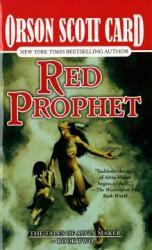
Continuing from the previous book in the Alvin Maker series, Red Prophet flashes back and shows certain events from a different point of view before driving forward into some fascinating alternate history. I continue to enjoy the fantastical elements brought into American history, even to the point of explaining how certain famous historical figures were the way they were. Although, if you know enough history, you’ll realize the fates of some of the characters presented in Red Prophet (William Henry Harrison, for instance) might not need the foreshadowing missing from this text.
While Seventh Son managed to set up this alternate history and establish some of its rules, Red Prophet delves into the action and excitement that comes from some of the more “kinetic” talents of these characters. Once the plot catches up with where Seventh Son left off, I was hooked. The interactions between Alvin and the Native Americans were quite interesting, and I found everything up until the climactic battle to be top-notch storytelling. Sure, it took a little while to get there, having to first set up the eponymous “Red Prophet” and his powers of observation, but it was worth it in the end.
My one qualm with this book lies in some of its more peculiar metaphor, allegory, and allusion. Near the end of the book, several scenes and sections feel entirely disjointed from the narrative. Perhaps they were to serve some “higher purpose” to lay out the moral of the story—or even the series as a whole. These scenes had characters who suddenly were ripped out of their normal behavior and put into a completely different context. And for what? To show that the history of the Native Americans is rich and varied while also infused with war and darkness? There had to be some other way to convey this than the way it was done here.
An action-packed follow-on to Seventh Son that gets a little too “heady” at times, I give Red Prophet 4.0 stars out of 5.
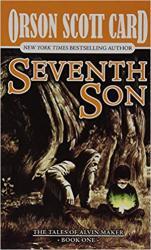
Having loved Orson Scott Card's Ender Saga, I decided to start into another of his series, Tales of Alvin Maker. I was used to his science fiction writing, so I thought it would be interesting to see how he handled semi-historical fiction. For the first book in a series, Seventh Son certainly has its strengths and weaknesses. It’s clear this book came on the heels of the Ender Saga, as there are a lot of parallels between characters and motifs that I just couldn’t ignore. Not that that’s necessarily a bad thing by any means.
While the history of colonial America is the setting of Seventh Son, the fantasy elements added to it made for an interesting read. I did appreciate the distinctive “good vs. evil” conflict between the Makers and the Unmaker, even if it’s a little too tried and true. At the very least, while the religious characters had some amount of strawman characterization set against them, they were well rounded enough not to make the whole story seem too anti-Christian. They weren’t necessarily the enemies, but their ignorance factored into the enemy’s tactics.
Perhaps the little snippets of American history sprinkled throughout this book were what intrigued me the most. Sure, the superstition and “magic” involved in creating an alternate timeline of history made quite a bit of sense. However, without at least a cursory knowledge of these events and historical figures, then readers could potentially miss a lot of substance. As with the Ender Saga, Card uses his writing to dive into different theologies and philosophies that do more than merely entertain. The fact that books like this can be thought-provoking through solid characters is a testament to his talent as a writer.
An adequate start to a series with plenty of potential, I give Seventh Son 4.0 stars out of 5.
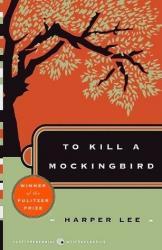
To Kill a Mockingbird, by Harper Lee, is a fantastic novel that examines the racism present in the South during the Great Depression. The book includes several remarkable instances of justice being served to the widespread prejudice present, which captures the reader. All of the character are well developed and serve well in their roles, especially the main protagonist. The entire setting is also intriguing and forms a solid foundation for the plot. Overall, I would recommend this book to anyone as it is a fascinating tale about Southern life.
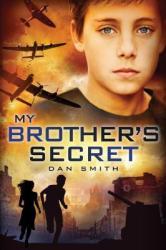
This book takes place during WWII, and is from the perspective of a boy attending the Hitler Youth. He starts out supporting Hitler and what he's doing, but after moving soon discovers that the way he'd been thinking was wrong. He slowly starts to change the way he's thinking and join a rebellion, putting him at risk. This does end up getting him in a sticky situation, but does he get out? Read to find out.
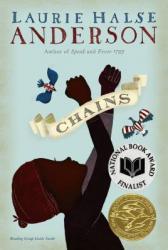
Isabel Finch is a slave girl and belongs to Miss Mary Finch. When Miss Mary Finch dies, she and her younger sister Ruth must travel away from Rhode Island and to New York where they are bought and serve a new master. This master is a strong loyalist and Isabel finds herself trading information about battles and invasions to the local patriot camp in New York. I loved this book because it showed bravery and the injustice of slavery for young girls. I would fully recommend this book to anyone who has a heart for historical fiction.
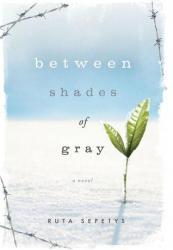
Taking place during WWII... Lina, a fifteen-year-old girl, lives a peaceful and normal life drawing and going to school but when the NKVD, better known as Soviet officers, force them to leave, adventure and chaos abduct Lina's normal lifestyle. Lina, her brother Jonas, and her mom Elena have to travel by train living with the bare minimum to survive off of. From Soviet officers forcing them to work to stealing food to survive, Lina has to find a way to outlast WWII and the capture of her family. Her main goal through all this; to find her dad. This dramatic adventure written by Ruta Sepetys will pull you off your seat.
Reviewer's Age: 15
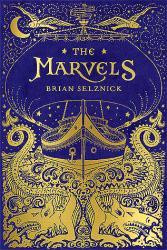
This book begins on a ship at sea with a boy named Billy Marvel. He survives a terrible shipwreck and later finds work in a London theatre. There his family lives for generations as brilliant actors--some who are the best kind of people, some who are awful people. All of the family are actors and love the stage and spotlight until young Leontes Marvel. He hates acting, misses his cues, and can’t remember his lines. His parents are ashamed and banish him from the stage. He decides that his destiny lies somewhere else so he runs away.
A century later, Joseph Jervis, another runaway, finds a place to stay with an uncle in London. Grumpy Uncle Albert and his strange but beautiful house lure Joseph on a search for clues. He begins to think that he might be related to the Marvels and begins an incredible adventure to find out who he truly is.
I really enjoyed this book. During the mystery, I felt like I was right alongside Joseph as he found clues to his mysterious past. I am happy that I figured out the mystery before Joseph did. The story had a very sad ending, but overall stayed pretty bright. I would recommend this book to anyone who likes Brian Selznik’s other books, mysteries, or heartfelt books.
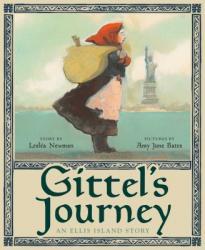
This is the story of Gittel. She is supposed to travel with her mother to America. At the last minute, her mother is unable to board the boat because of health concerns and so Gittel must travel alone. Read the story of tis young Jewish girl and her journey to America for a better life. Will she find mama’s cousin when she reaches America? Will her mother be able to join her in the new country? Read this beautifully illustrated picture book to find out. It’s loosely based on stories handed down in the author’s family.
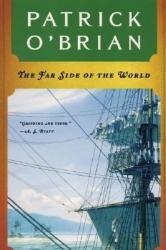
Nautical historical fiction is a rare genre for me to read. The last one I read—and that most people would be able to recognize—was Moby-Dick , and that was probably 15 years ago. Needless to say, I found myself in brief possession of The Far Side of the World and decided to give it a read. Of course, this was mostly because of the movie of the same name released in 2003 that earned many Oscar nominations (only winning in two). While the plot of both is slightly different in a few key areas, I wasn’t disappointed with having read this book.
First, as a historical look into the realms of sailing and whaling at the time, The Far Side of the World does a fantastic job of informing and educating the reader without necessarily resorting to huge exposition dumps. Sure, a few moments were a little obvious that the author was trying to get information across as quickly as possible, but these were rare. Secondly, this book seemed to include an exhaustive amount of problems that you’d encounter when sailing the seas. This meant that each page of each chapter had something the crew was trying to overcome, even if this seemed like a distraction at most times.
While the main thrust and driver of the plot of The Far Side of the World was clear from the start, my one qualm with this book was its inability to transition from one thought to the next. It sure had a steady pace, like a ship cutting through calm waters. Sometimes, though, the different topics would come in a choppy way that made me double back and re-read a page to make sure I didn’t miss some crucial transition (which were rarely there). Perhaps this adds to the realism of the “things happen without expecting them” element of sailing. Far too often, I found myself trying to figure out why this minor sub-plot mattered before it changed to something else entirely.
A thorough and steady-paced nautical historical fiction, I give The Far Side of the World 3.5 stars out of 5.


